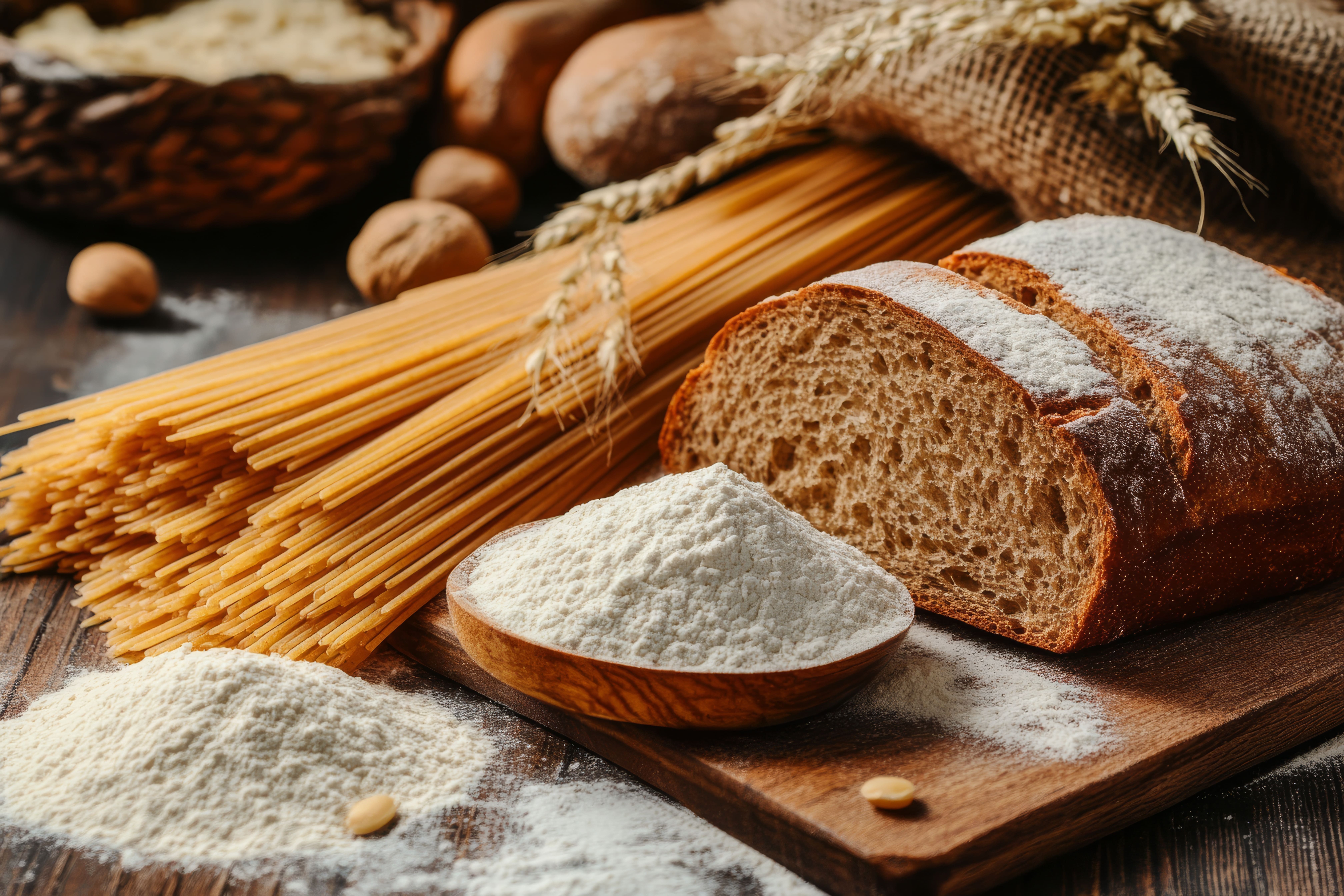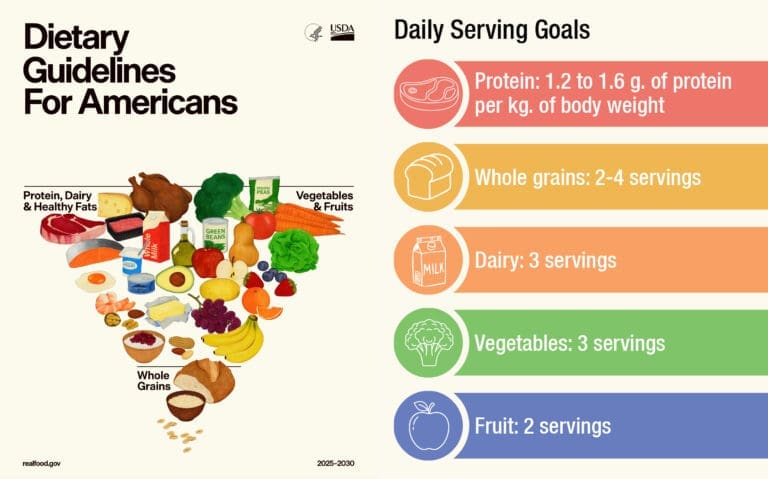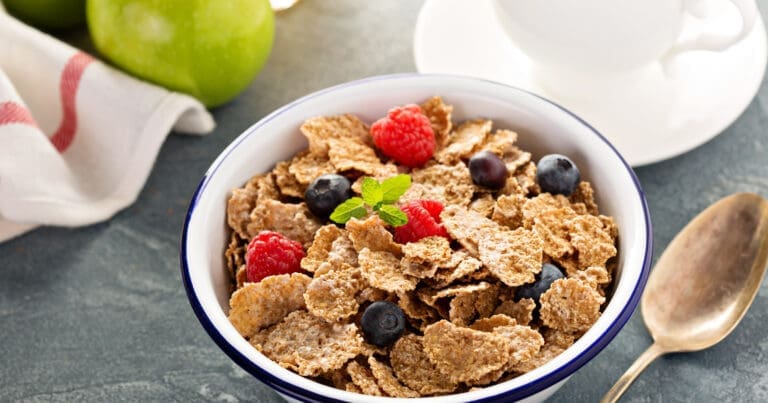Wheat
Nutrition
Health benefits of wheat
Wheat isn’t just a staple food — it’s a cornerstone of nutrition that fuels your body, supports your well- being and plays a vital role in a balanced diet. As one of the most versatile grains, wheat provides a wide range of health benefits when incorporated into your meals.
Why wheat deserves a place in your diet

High in fiber
Wheat, particularly whole wheat, is an excellent source of dietary fiber. Fiber promotes healthy digestion, helps regulate blood sugar levels and contributes to a feeling of fullness, making it a great ally for weight management.

Heart health support
Whole wheat has been shown to reduce bad cholesterol levels and lower the risk of heart disease. Its natural compounds, including antioxidants and fiber, work together to keep your heart healthy.

Nutrient-rich powerhouse
Wheat is loaded with essential vitamins and minerals, such as B vitamins, iron, magnesium and selenium. These nutrients are vital for energy production, immune support and overall health.

Long-lasting energy
Thanks to its complex carbohydrates, wheat provides a steady source of energy, helping you stay active and focused throughout the day.

Promotes healthy weight management
The combination of fiber and nutrients in wheat supports satiety, reducing overeating and helping you maintain a healthy weight naturally.

Versatile and delicious
From bread and pasta to nutritious wheat-based cereals and snacks, wheat fits seamlessly into a variety of meals. Its mild, nutty flavor complements sweet and savory dishes alike, making healthy eating an enjoyable experience.
Frequently asked questions about wheat
Is wheat good for your health?
Yes, wheat is a nutritious food that offers several health benefits. It is rich in fiber, vitamins and minerals like B vitamins, iron, magnesium and zinc. Whole wheat has been linked to improved digestion, heart health and a lower risk of chronic diseases like Type 2 diabetes.
Is wheat good for weight loss?
Whole wheat can be part of a weight-loss-friendly diet. Its high fiber content helps you feel full longer, preventing overeating.
Can wheat help with digestion?
Yes, wheat — especially whole wheat — helps with digestion because of its high fiber content. Fiber promotes regular bowel movements and helps prevent constipation. It also supports a healthy gut microbiome, which is crucial for overall digestive health.
Does wheat cause gluten intolerance or allergies?
Wheat contains gluten, a protein that can cause digestive issues for individuals with celiac disease or non-celiac gluten sensitivity. For those without gluten intolerance, wheat is considered safe and provides numerous health benefits. If you’re unsure whether gluten affects you, consult with a healthcare provider for proper testing.
Is wheat a good source of protein?
Yes, wheat contains moderate amounts of protein, though it’s not as high in protein as animal products or legumes. However, it still contributes to daily protein intake, especially in vegetarian or plant-based diets. The protein in wheat is primarily gluten, which gives wheat its elasticity in baking.
Does wheat have antioxidants?
Yes, wheat is a good source of antioxidants, particularly phenolic compounds and vitamins such as Vitamin E. These antioxidants help neutralize harmful free radicals in the body, which may reduce the risk of chronic diseases and promote overall health.
Can wheat help lower cholesterol?
Whole wheat has been shown to have a positive impact on cholesterol levels. The soluble fiber in whole wheat can help lower LDL (bad) cholesterol and may support heart health by reducing the risk of cardiovascular disease.
Is wheat good for your skin?
Wheat provides essential nutrients such as zinc, which supports skin health and helps in wound healing. Antioxidants in wheat may also help reduce inflammation and protect the skin from free radical damage.
Can wheat help manage blood sugar levels?
Wheat can help manage blood sugar levels due to its high fiber content, which slows the absorption of sugar into the bloodstream. This can be beneficial for people with Type 2 diabetes or those trying to manage blood sugar spikes.
Is wheat suitable for people with diabetes?
Whole wheat is generally a better option for people with diabetes compared to refined wheat. The fiber in whole wheat can help regulate blood sugar levels and improve insulin sensitivity. However, it’s important to manage portion sizes to avoid large spikes in blood sugar.
Health info blog

Fueling performance: why athletes need carbohydrates
With the excitement of the Olympics in the air, many people are inspired by elite athletes and their dedication to

Show your heart some love with whole wheat
Heart health is a priority for many Americans, especially as we think about long-term wellness and everyday food choices. What

Whole wheat and healthy eating
When new dietary guidelines were introduced at a recent news conference, USDA Secretary Brooke Rollins emphasized a message nutrition experts

A new year, a balanced plate: making room for grains
The start of a new year often brings renewed focus on healthy eating. Many people look for ways to feel

How wheat supports healthy blood sugar
More consumers today are focused on using food as a tool for better health — especially when it comes to

Power of phytonutrients: Why they matter in your diet
When we think about eating for good health, most of us focus on the big nutrients: carbohydrates, protein, fat, vitamins

Wheat protein: the plant-based power you might be overlooking
When most people think of protein, they picture meat, eggs or dairy. But did you know wheat is also a

Whole Grains Linked with Lower Risk of Gum Disease
Periodontitis, or gum disease, can put people at risk for heart and lung diseases down the road. Researchers analyzed the

Why bread is enriched — and how it helps protect public health
Bread has long been a staple in the American diet, providing essential calories and nutrients to people across all age

Is it healthy to avoid wheat? What the science says
In recent years, avoiding wheat has become a trend among people trying to improve their health. You’ve likely seen “gluten-free”

How wheat foods support a healthy pregnancy
Pregnancy is a time of rapid growth and change, and nutrition plays a major role in supporting both mother and

Yes, you can lose weight and still eat wheat foods
When it comes to weight loss, wheat often gets an undeserved bad reputation. Popular fad diets may tell you to
